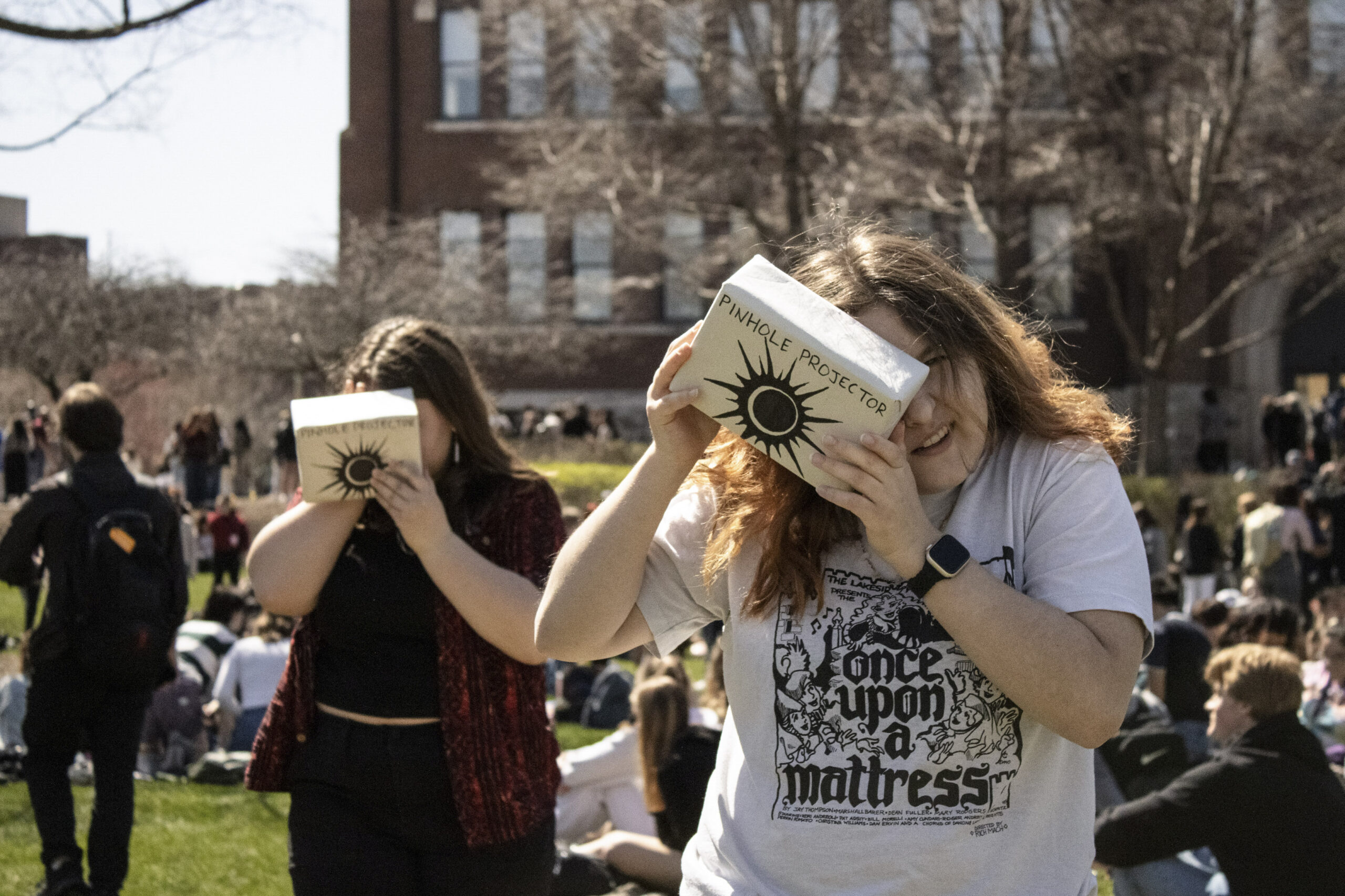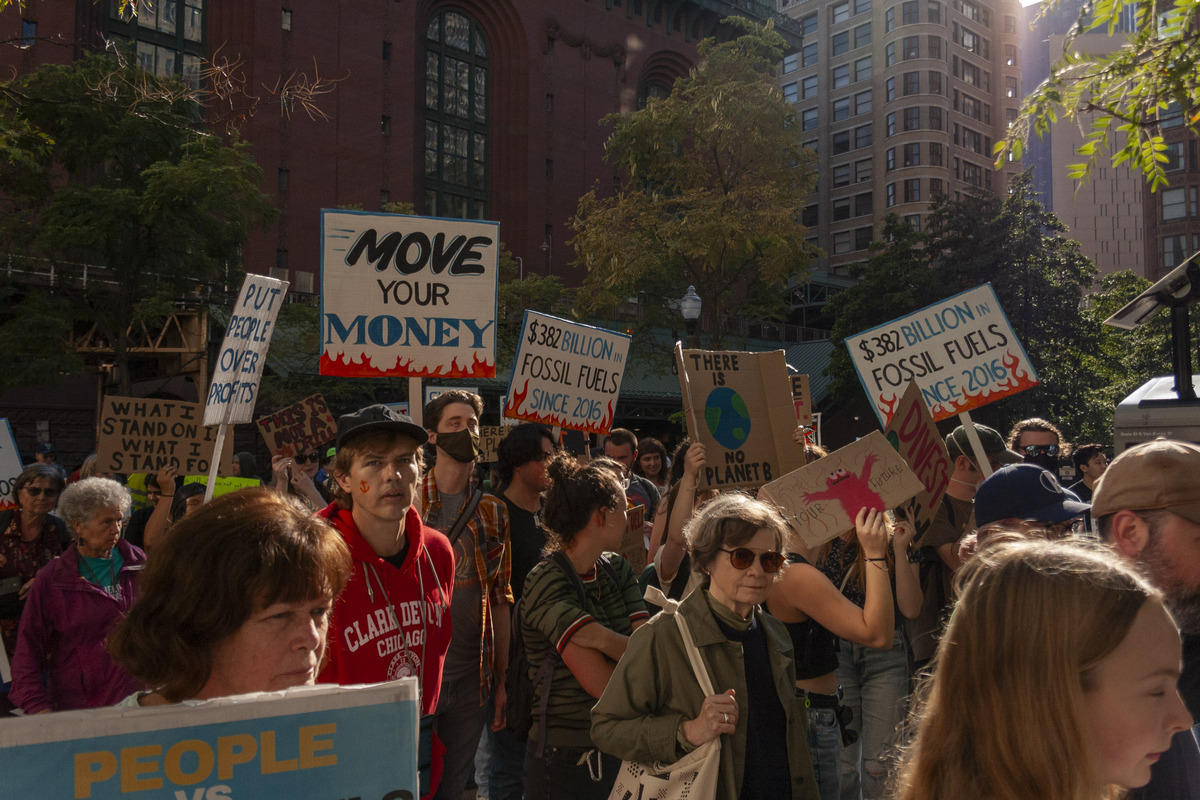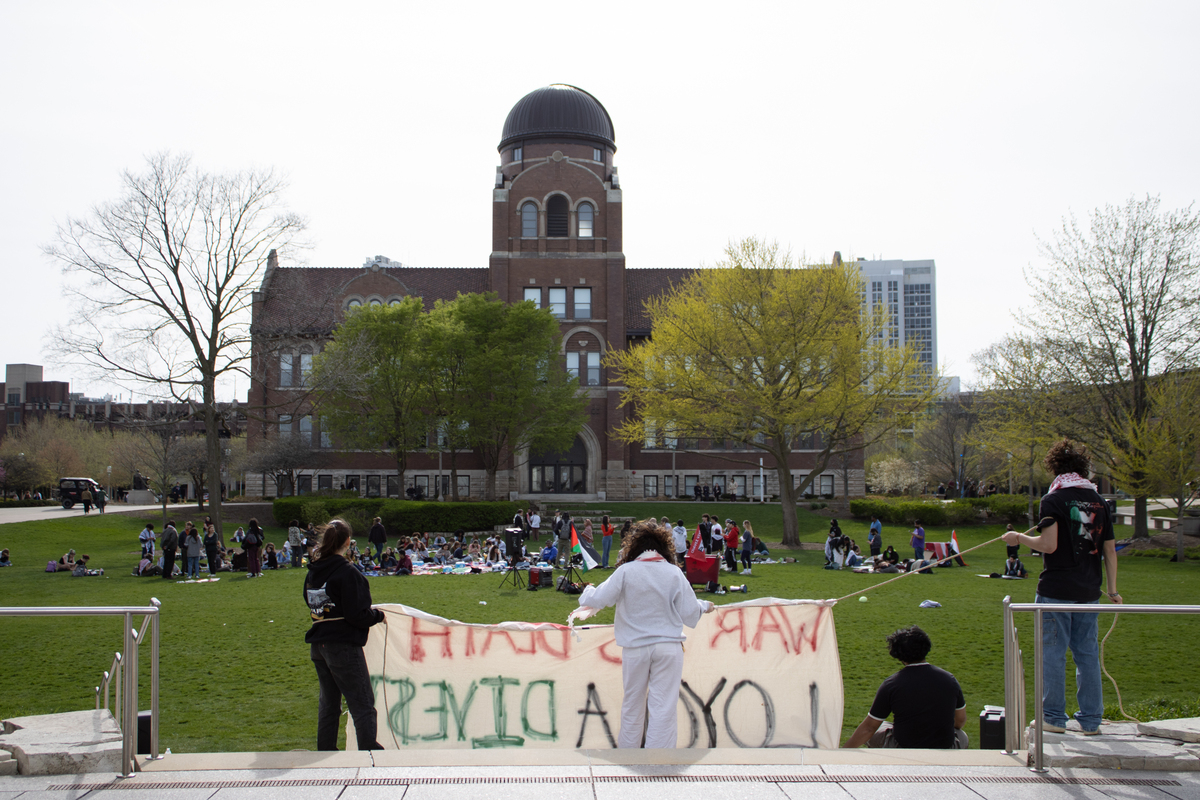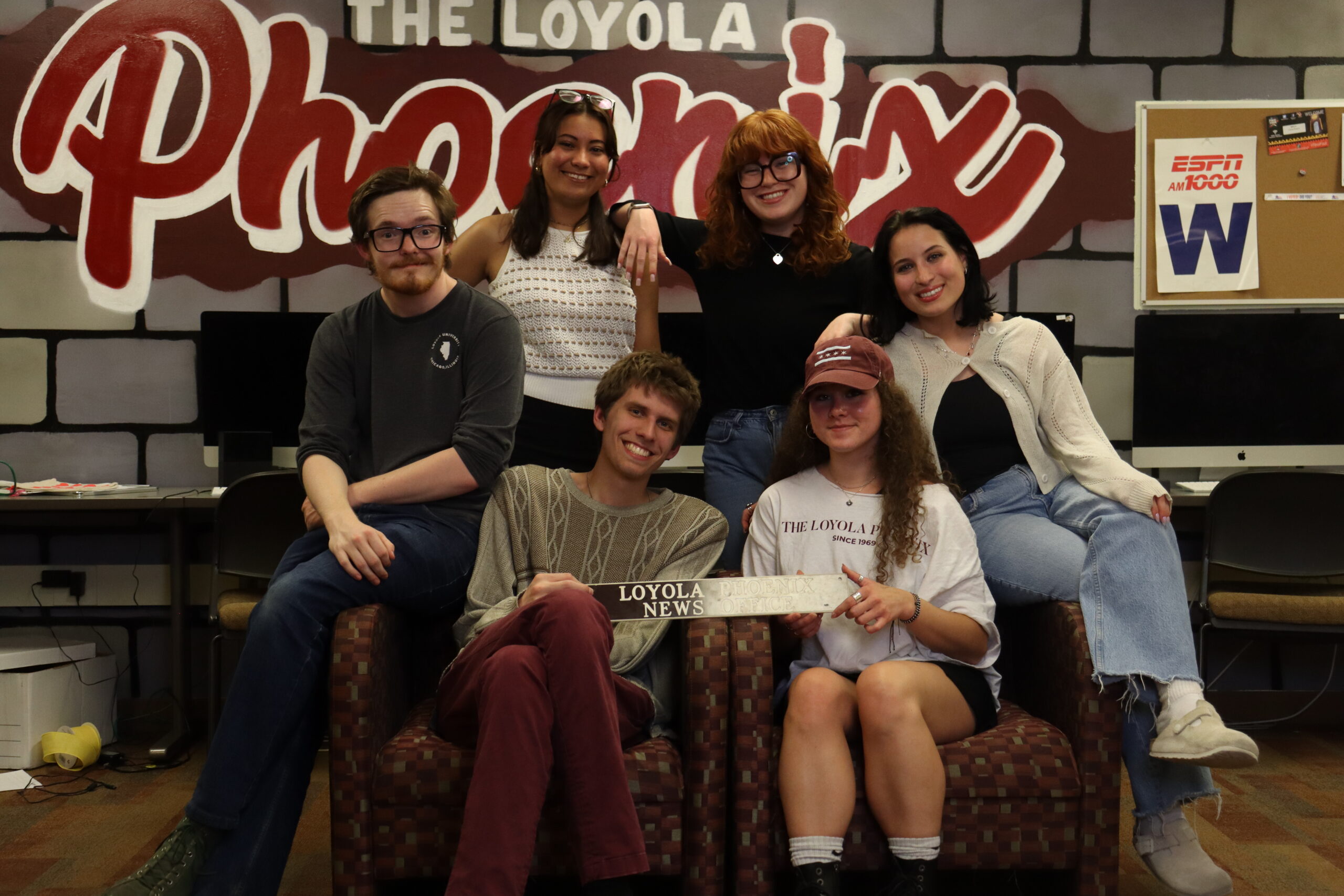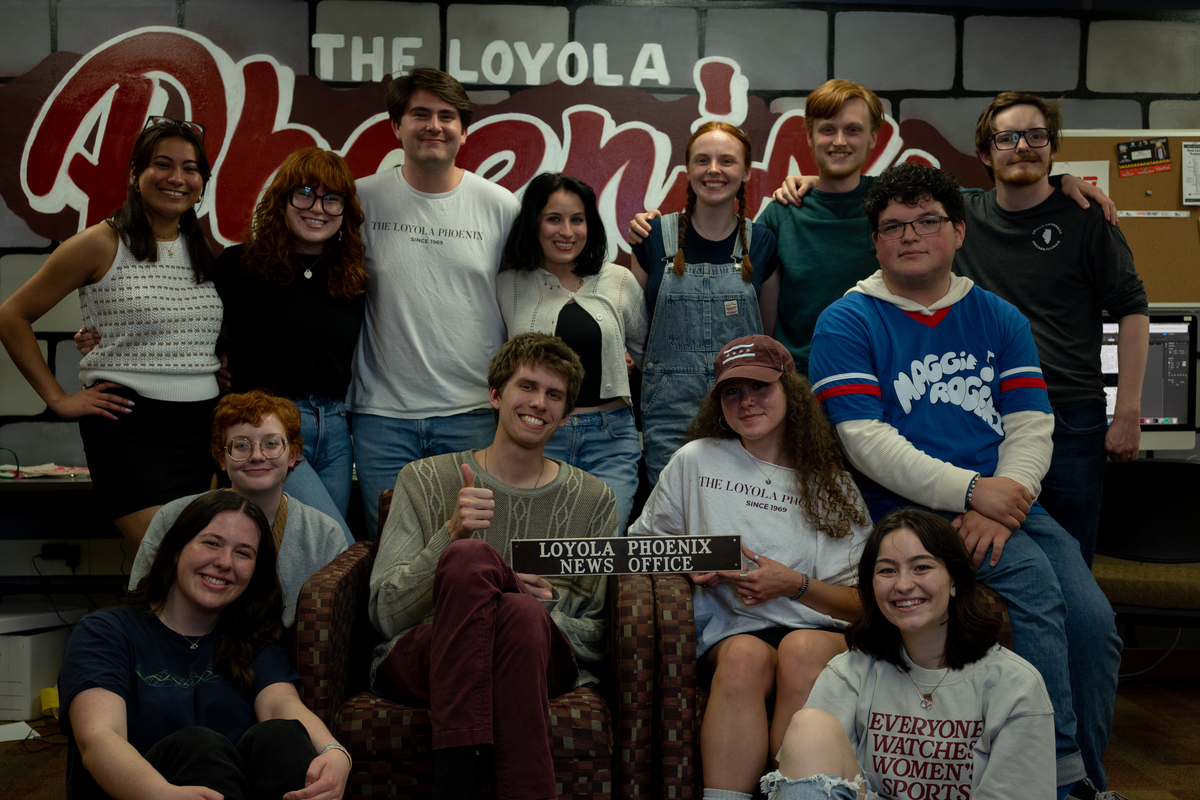Inside Government Hosted a Panel on the Inflation Reduction Act and Climate Change with Rep. Jan Schakowsky and Environmental Experts.
Rep. Jan Schakowsky discussed the IRA and Climate with Loyola Students and Faculty

Illinois’ 9th Congressional District Rep. Jan Schakowsky spoke at a panel hosted by Inside Government on Oct. 18 in the Galvin Auditorium of the Sullivan Center which discussed several aspects of the Inflation Reduction Act (IRA). The act became law on Aug. 16, and included efforts to reduce carbon emissions, electric vehicle tax credits, prescription drug price controls and environmental justice measures which were all discussed at the panel.
Inside Government is a non-partisan joint student and alumni organization that offers students an insider perspective into government through a range of opportunities for engaging with government and inviting those in government to speak at Loyola, according to Inside Government.
Alongside Schakowsky was Gilbert Michaud, Karen Weigert and David McEllis who are experts in fields relevant to the IRA such as environmental policy and social justice. The panelists examined several prepared discussion points prepared by Inside Government that addressed the main components before answering audience submitted questions.
Schakowsky opened the forum by highlighting Loyola’s recent efforts to become carbon neutral by 2025, which The Phoenix reported earlier this year. She praised the commitment by the school on climate issues while acknowledging how budgeting and construction concerns can make such a commitment difficult.
“There’s no question that the climate and what is happening to our climate and its effect on all living things is an existential issue,” Schakowsky said. “And when I was in the state legislature in the 1990s I actually made a speech on the floor then saying we have to pay attention to a climate crisis. Well, it’s here.”
Schakowsky also promoted the IRA which was signed into law by President Joe Biden on Aug. 16. Schakowsky said there is still more work to be done addressing climate change beyond the provisions in the IRA allotted to climate policy.
“It’s not just a bunch of things on a piece of paper,” Schakowsky said. “There is a long series of commitments that have been made by the United States, money attached to those commitments to significantly address the climate crisis.”
Karen Weighart is the director of the Baumhart Center for Social Enterprise and Responsibility on the Water Tower Campus, where she teaches students how to use business skills to address modern day problems. She attested to challenges and effects of climate change, particularly on minorities and other groups historically overlooked by climate legislation.
“We have communities that have had decade after decade of not just disinvestment, but the opposite – landfills, pollution have been layered on top in communities,” Weighart said. “So this idea of intentionally focusing investment, intentionally looking to not just create opportunities but to clean up the challenges that exist is a critical part of what climate future needs to look like.”
During the forum, a number of members of Students for Justice in Palestine stood outside the Sullivan Center holding signs in protest against Schakowsky. Protestors previously gathered outside of Shakowsky’s Chicago office to pressure her into supporting a bill to make the United States aid to Israel conditional, The Phoenix reported.
Schakowsky is Jewish and has consistently voted for measures to assure Israel’s security and for a two-state solution with Palestine, according to her congressional website.
“The thing that disappoints me most about the protestors that are out there is that I am one of the leading voices in the Congress for what we call a two-state solution,” Schakowsky said to The Phoenix. “For the state of Israel to exist side-by-side with a strong and independent and self-determining Palestinian state. I think I am viewed, somehow, from these Palestinian-Americans as not being an ally fundamentally of their cause.”
Despite this disagreement, Schakowsky still supported the protestors’ First Amendment rights to peacefully protest.
“I have no problem with peaceful protests, even if I disagree with the positions they may be taking,” Schakowsky said. “I certainly defend their right to be here and to say what they like.”
Gilbert Michaud is an assistant professor of environmental policy. He was happy to see some of his students present at the forum. Michaud said his classes frequently focus on procedural environmental justice, and he tries to involve his students with marginalized communities.
Michaud’s background is in economics and public policy, and much of his work centers around energy transitions and pollution impact modeling.
“Before coming to Chicago I was doing a lot of work in Appalachia,” Michaud said. “These areas where folks have had to make these really challenging decisions about, ‘I need a living wage, but I’m also breathing in this really awful air by working at this coal-fired power plant.’”
David McEllis is the Illinois legislative director at the Environmental Law and Policy Center. There, he has worked mostly on state policy, including the Sept. 15, 2021 Climate and Equitable Jobs Act (CEJA). The CEJA includes government subsidies for clean energy, programs to encourage private investment in clean energy and pledges to ensure an equal number of new green jobs for people of color, according to the Associated Press.
McEllis explained how science is the foundation for the reasoning behind net zero emissions goals.
“The science of keeping our temperatures under the 1.5 degrees Celsius goal is to prevent a global collapse,” McEllis said. “The trajectory without the IRA was not going to meet that goal, and with the IRA we could.”
In the face of approaching midterm elections where Republican leaders are vying to regain control of Congress, Schakowsky reminded Loyola students and faculty about the political side of climate topics.
“It’s not just knowing the science, and it’s not just understanding the economics, and it’s not even identifying the potentials,” Schakowsky said. “It’s that we’re going to have to fight to keep it. Vote, vote, vote.”



